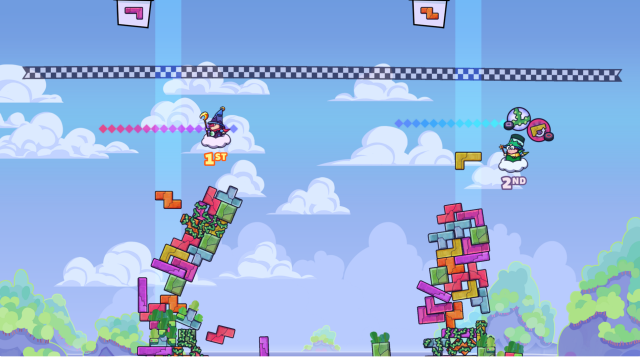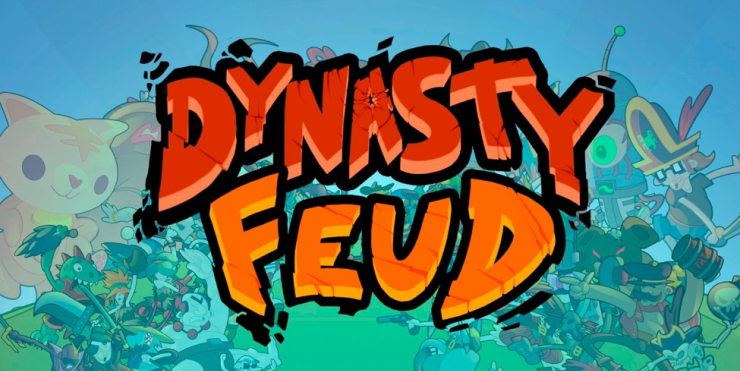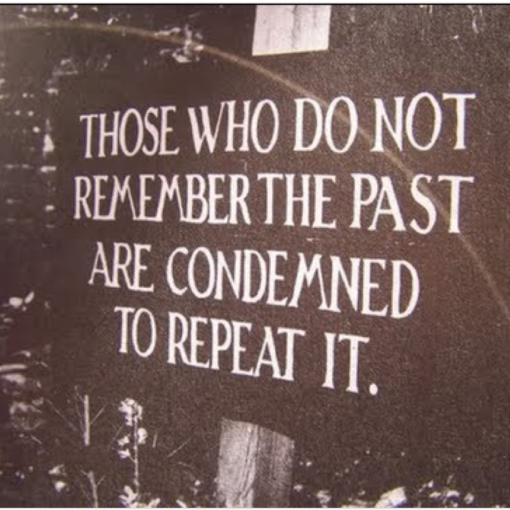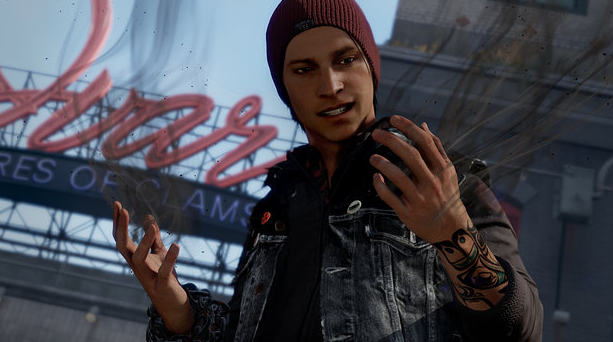I have been playing a lot of Final Fantasy XV over the course of the last month. It’s a game that I was pretty sure that I wasn’t going to play (or like), but I rented it on a whim and I have to admit that I was pretty quickly hooked. The game was beautiful, the music amazing, and the travel narrative surprisingly engaging. Not engaging in a “Wow, this is a great story way!”, but more of a “Let’s see what happens next” kind of way. It was even a game that I felt pretty comfortable playing as my 8 year old walked around the house…well except for Cidney. Cidney is another story entirely. My daughter walked by as I was talking to her and immediately asked where her clothes were, but what really struck me was the other question she asked. She stood watching as I ran around collecting quests and killing monsters and finally asked where the children were in the game.
And then it struck me, there were no children there. And I started to think about why. We are looking at a story where the world is at war. Magic and chaos reign. A king has fallen (spoilers!) and a new monarch is fighting for the throne (and whining about it the whole time), but what is conspicuously absent is children. There are no children on the beach, in the shopping areas, or in the gas stations along the way. The only child that we interact with during the first half of the game (7 chapters for me thus far) is young master Talcott and he serves a very specific narrative purpose. He is not there for his own narrative line. He is there for a very specific purpose. He is there to serve the story of your character, the main protagonist. And once his purpose is served he is gone (not nearly as ominous as it sounds for young Talcott, I promise).
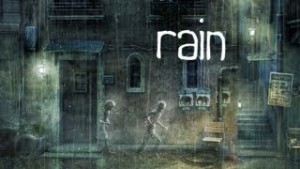 The absence of children in FFXV made me think about my own take on children in games. I have been more than forthcoming about my take on children in video games. I don’t like games where children are in peril. When Talcott entered the scene in FFXV my entire body tensed. I was fearful for him. People were dying all around him and there he was sweet faced, innocent, and eager. It almost seemed he was destined to die (and he still may). I have quit playing games like Rain and cried into the mic while streaming Inside, because of the children. And then I started to think about other games that I have been playing lately.
The absence of children in FFXV made me think about my own take on children in games. I have been more than forthcoming about my take on children in video games. I don’t like games where children are in peril. When Talcott entered the scene in FFXV my entire body tensed. I was fearful for him. People were dying all around him and there he was sweet faced, innocent, and eager. It almost seemed he was destined to die (and he still may). I have quit playing games like Rain and cried into the mic while streaming Inside, because of the children. And then I started to think about other games that I have been playing lately.
Stardew Valley has children. Small children run around as atmosphere. They may talk to you, they may tell you that they can’t talk to you because you are a stranger, but they are never in peril. Even if/when you have children of your own and you go about fighting monsters in dungeons, your children are safe. In Pokemon Sun/Moon you are a child, but you are of the Kiki (from Kiki’s Delivery Service) type. You are the mythical adult like child who is able to roam the world fighting pocket monsters without adult supervision.
All of this has made me think a lot about the ethics of using children as ambience (or plot devices) in video games. We’ve been talking a lot about ethics in video games in one of my classes this week so I am pretty sure this is why. In his essay “Killing Digital Children: Design, Discourse, and Player Agency” Bjorn Sjoblom writes
…the player is given the sense the child is not someone who has a natural place in the virtual world of these games but rather someone who sits at odds with the dominating logic of these places. The way that interactions with child NPCs are restricted in open-world sandbox games is, I would argue, a way of circumscribing the ways children in general can feature in the game worlds. Disallowing some interactions with children risks reducing them to tokens in the game, part of the decoration. Even though they might play a part in the unfolding narrative of a game, which is the case in, for example, Fallout, they are restricted in the ways they can become part of the player’s interaction with the game, and this depends on the player’s own choice and agency. Sicart turns against the view of game-players as “moral zombies” (2009, 18), instead insisting players are ethical beings making morally informed choices in the game world. At the same time, these game-play ethics rely on the possibility of choice in somewhat simple terms. Moral choice requires free will.
Sjoblom’s take is an interesting one. Do we do ourselves a disservice by minimizing the presence of children in video games? How would our experiences playing Final Fantasy XV, Grand Theft Auto V, or even Mafia III (which also has a conspicuous absence of children) change if there were children in the world that we were forced to interact with in meaningful ways as we pillaged? Would we be more or less likely to go to strip clubs or beat up hookers on the street? Or in a more realistic way, how would we react to being called “nigger” or “boy” in Mafia III if there were children (Black or white) to witness it? What if we walked into a house prepared to wreck havoc and found that children lived there as well? In a game like Mafia III that would make a real difference for me. What do we teach children by our silence? What do we teach them by our actions? To what degree are they to reap the rewards or punishment that their parents, caregivers, or friends sewn by their actions?
 The absence of children in games like these gives us an out. It allows us to run amok or experience virtual racism, sexism, homophobia, and misogyny in a space where there are no children that you have to feel responsible to or for. While we see the influence that living in poverty and crime in the racist South may have had on a character like Lincoln Clay through flashbacks, we are not able to see what the effect the violence that we are complicit in has on children in the current (as in 1968) moment.
The absence of children in games like these gives us an out. It allows us to run amok or experience virtual racism, sexism, homophobia, and misogyny in a space where there are no children that you have to feel responsible to or for. While we see the influence that living in poverty and crime in the racist South may have had on a character like Lincoln Clay through flashbacks, we are not able to see what the effect the violence that we are complicit in has on children in the current (as in 1968) moment.
Most interestingly and more recently, games like This War of Mine: The Little Ones and (to an extent) Papers, Please takes these realistic moments and force us to think about the roles that children play in these narratives outside of just driving the story of an adult protagonist forward. What is the role of children in games like these? And can we really have ethical game design (and by extension ethical game play) if we don’t offer the player the opportunity to have a full array of choices and experiences that include all people. In short does saving us from ourselves also limit free will?

